BOOKKEEPING ARTICLES AND RESOURCES

Tips for Keeping Track of your Business Finance Records
Tips for staying organized and keeping track of your business finances
There's no denying that business finances can be tricky to keep track of. But whether you're a solopreneur or you have a team of employees, staying organized is crucial to keeping your business afloat. Here are a few tips to help you get started:
Digital Records
There is truly no need to print and keep paper copies of all your receipts. Not only is it a waste of paper, but it's also a lot harder to keep track of. Instead, scan or photograph your receipts and store them electronically. This way, you can access them from anywhere and they'll be much easier to organize.
Being able to use the search function within your digital records is significantly more effecient then rifling through a box or drawer of physical receipts. You can also easily share digital files with your accountant or bookkeeper.
Set Up a Filing System
Whether you're storing physical or digital records, it's important to have some kind of filing system in place. This will help you stay organized and make it easy to find what you are looking for. We recommend filing by month - and not by expense type this makes reconciliation much easier.
Use the appropriate software
Using the appropriate software is essential to tracking things effeciently. For example, most businesses will need to track inventory levels, sales and invoices. There are many software programs available that can help with this process - find one that works for you and your business. We recommend Quickbooks Online, interested in a discount? Grab it here.
Stay Compliant
Ensure that your filings are up to date and acurate.
This will help avoid any penalties or interest charges and the stress that comes with it. If you are unsure what taxes you need to be collecting or remitting ask your accountant.
Know your tax deadlines and make sure you're setting aside money for taxes throughout the year. This will help you avoid any last-minute scrambling come tax season.
Regular Reconciliation
One of the most important things you can do to stay on top of your business finances is to reconcile your accounts regularly. This means matching up your records with your bank and credit card statements to make sure everything matches up. Doing this on a monthly basis will ensure that any errors are corrected right away, and prevent the same mistake from being completed over and over.
Keep Personal and Business Finances Separate
Ensure that if you are mixing business and personal finances that you are keeping excellent records. This will help at tax time and make it easier to see where your business stands financially. Anytime you are using personal funds for your business track this as 'due to business owner'.
Stay on Top of Your Invoices and Payments
Make sure you're sending invoices out in a timely manner and following up on any late payments. This will help you avoid cash flow issues down the road.
Use accounting software to automate invoicing and payments, and set up reminders so you never miss a payment.
Hire a Professional
If all of this sounds like too much to handle on your own, consider hiring a professional to help you with your business finances. A bookkeeper can help you stay organized and ensure that everything is taken care of. A bookkeeper can also help set up your systems so that you can maintain on your own.
If you're not ready to hire someone full-time, consider outsourcing your bookkeeping to Bottcher Business Management Agency. This can be a more cost effective solution and will free up your time so that you can focus on other aspects of running your business.
No matter what route you decide to go, the most important thing is to stay on top of your finances. This will help you avoid any stressful surprises down the road and ensure that your business is running smoothly.
By following these tips, you'll be well on your way to staying organized and keeping your business finances in order. If you have any questions or need assistance getting started, don't hesitate to book a call here.

Tips for Keeping Track of your Business Finance Records
Tips for staying organized and keeping track of your business finances
There's no denying that business finances can be tricky to keep track of. But whether you're a solopreneur or you have a team of employees, staying organized is crucial to keeping your business afloat. Here are a few tips to help you get started:
Digital Records
There is truly no need to print and keep paper copies of all your receipts. Not only is it a waste of paper, but it's also a lot harder to keep track of. Instead, scan or photograph your receipts and store them electronically. This way, you can access them from anywhere and they'll be much easier to organize.
Being able to use the search function within your digital records is significantly more effecient then rifling through a box or drawer of physical receipts. You can also easily share digital files with your accountant or bookkeeper.
Set Up a Filing System
Whether you're storing physical or digital records, it's important to have some kind of filing system in place. This will help you stay organized and make it easy to find what you are looking for. We recommend filing by month - and not by expense type this makes reconciliation much easier.
Use the appropriate software
Using the appropriate software is essential to tracking things effeciently. For example, most businesses will need to track inventory levels, sales and invoices. There are many software programs available that can help with this process - find one that works for you and your business. We recommend Quickbooks Online, interested in a discount? Grab it here.
Stay Compliant
Ensure that your filings are up to date and acurate.
This will help avoid any penalties or interest charges and the stress that comes with it. If you are unsure what taxes you need to be collecting or remitting ask your accountant.
Know your tax deadlines and make sure you're setting aside money for taxes throughout the year. This will help you avoid any last-minute scrambling come tax season.
Regular Reconciliation
One of the most important things you can do to stay on top of your business finances is to reconcile your accounts regularly. This means matching up your records with your bank and credit card statements to make sure everything matches up. Doing this on a monthly basis will ensure that any errors are corrected right away, and prevent the same mistake from being completed over and over.
Keep Personal and Business Finances Separate
Ensure that if you are mixing business and personal finances that you are keeping excellent records. This will help at tax time and make it easier to see where your business stands financially. Anytime you are using personal funds for your business track this as 'due to business owner'.
Stay on Top of Your Invoices and Payments
Make sure you're sending invoices out in a timely manner and following up on any late payments. This will help you avoid cash flow issues down the road.
Use accounting software to automate invoicing and payments, and set up reminders so you never miss a payment.
Hire a Professional
If all of this sounds like too much to handle on your own, consider hiring a professional to help you with your business finances. A bookkeeper can help you stay organized and ensure that everything is taken care of. A bookkeeper can also help set up your systems so that you can maintain on your own.
If you're not ready to hire someone full-time, consider outsourcing your bookkeeping to Bottcher Business Management Agency. This can be a more cost effective solution and will free up your time so that you can focus on other aspects of running your business.
No matter what route you decide to go, the most important thing is to stay on top of your finances. This will help you avoid any stressful surprises down the road and ensure that your business is running smoothly.
By following these tips, you'll be well on your way to staying organized and keeping your business finances in order. If you have any questions or need assistance getting started, don't hesitate to book a call here.

Quick Links
Why Choose Us
How does it work
Pricing
Social Media Links
© 2024 – Bottcher Group of Companies
All Right Reserved



